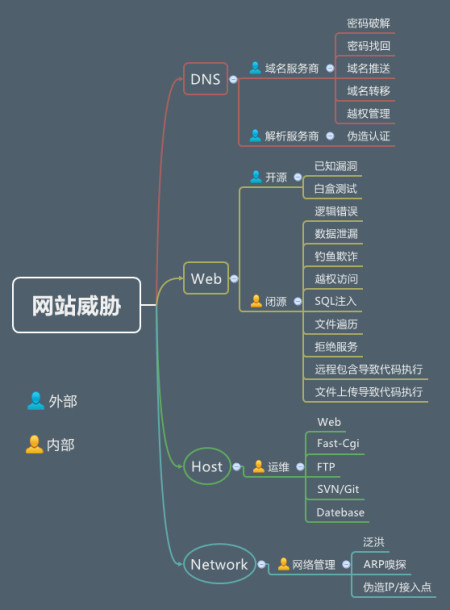Websites are exposed to the Internet, which makes them face many threats. Generally, they can be divided into internal and external threats. Internal threats, such as the threat of operation and maintenance itself, the threat of personnel, ftp, network ports and other threats, are relatively small. More external threats inject web threats, such as ddos, cc traffic attacks, data leakage, phishing attacks, sql injection, ultra vires, directory traversal, denial of service and other attacks, which can paralyze or tamper with the website, or leak database information, leading to the disclosure of confidential information of enterprises. Therefore, the security protection of websites is very important.
According to the Network Security Law issued by the state, once a website is maliciously attacked and tampered with or invaded, the person in charge and operator of the website shall be punished. For example, if Article 60 violates the provisions of the first and second paragraphs of Article 22 and the first paragraph of Article 48 of this law, and commits one of the following acts, the relevant competent department shall order it to correct and give a warning; Those who refuse to correct or cause consequences such as endangering network security shall be fined not less than 50000 yuan but not more than 500000 yuan, and the person in charge directly responsible shall be fined not less than 10000 yuan but not more than 100000 yuan.
Therefore, the safety protection of websites is very important, and we must pay attention to it. There have been many cases of information leakage, tampering and other fines on websites in China, and we should take a warning.
What should be done for the security protection of the website?
1. External malicious attacks can improve the shortcomings of the server and the website itself, and repair the vulnerabilities of the website. Hackers usually attack the website through the vulnerabilities of the website, so it is necessary to regularly scan the website for vulnerabilities while repairing the vulnerabilities, and can also deploy web application firewall products, which can effectively protect against sql injection, cross site scripting, website tampering Data leakage, Trojan backdoor and other malicious attacks.
2. To increase network bandwidth or deploy anti D devices, ddos and cc traffic attacks are just like Yangmou attacks. If you can see them but can't prevent them, the website will be paralyzed by heavy traffic. Therefore, increasing bandwidth or deploying anti D devices is an important way to effectively protect against traffic attacks.
3. It is necessary to develop a sound website management system. Internal non-standard operations and behavioral repudiation are also important issues that lead to information disclosure. Therefore, it is necessary to strictly specify who will operate and maintain the website, divide responsibilities, and prevent illegal operations.


